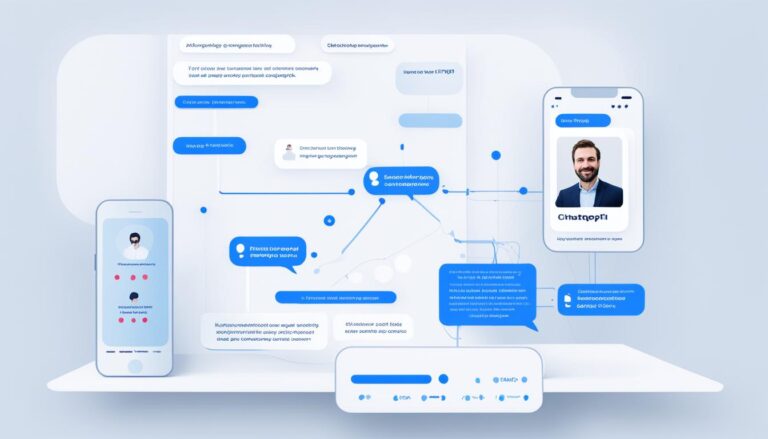
Photo by Hatice Baran on <a href="https://www.pexels.com/photo/open-laptop-on-desk-16037283/" rel="nofollow">Pexels.com</a>
Introduction
Artificial Intelligence (AI) has made significant strides in recent years, thanks to breakthroughs in natural language processing, computer vision, and machine learning. One such notable achievement is OpenAI’s ChatGPT, a state-of-the-art AI model capable of generating human-like text based on context and prompts. While ChatGPT has received widespread acclaim, there are several other AI applications that are equally impressive, offering unique capabilities and pushing the boundaries of what AI can achieve. In this blog post, we will explore five AI apps that are making waves in their respective fields.
1. OpenAI Codex: Revolutionizing the World of Coding
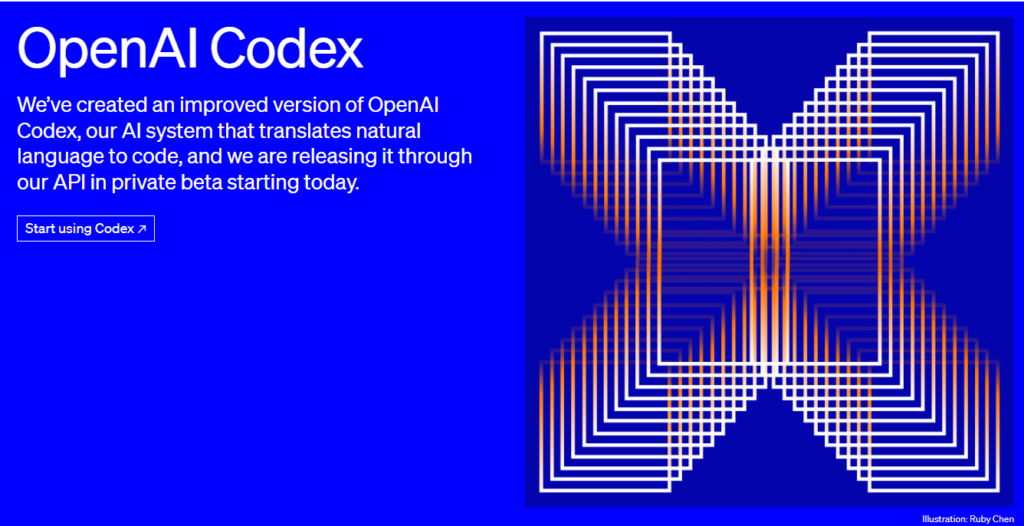
OpenAI Codex is an AI model that focuses on understanding and generating code in various programming languages. Building on the same transformer architecture as ChatGPT, Codex is designed to assist developers in writing code, suggesting code snippets, and debugging [1]. The AI model can process natural language queries and provide relevant solutions, making it a valuable tool for both seasoned developers and programming newcomers. Codex has been integrated into OpenAI’s API, enabling developers to build applications that can interact with code in a more intuitive manner [2].
2. DeepMind’s AlphaFold: Unraveling the Mysteries of Protein Folding
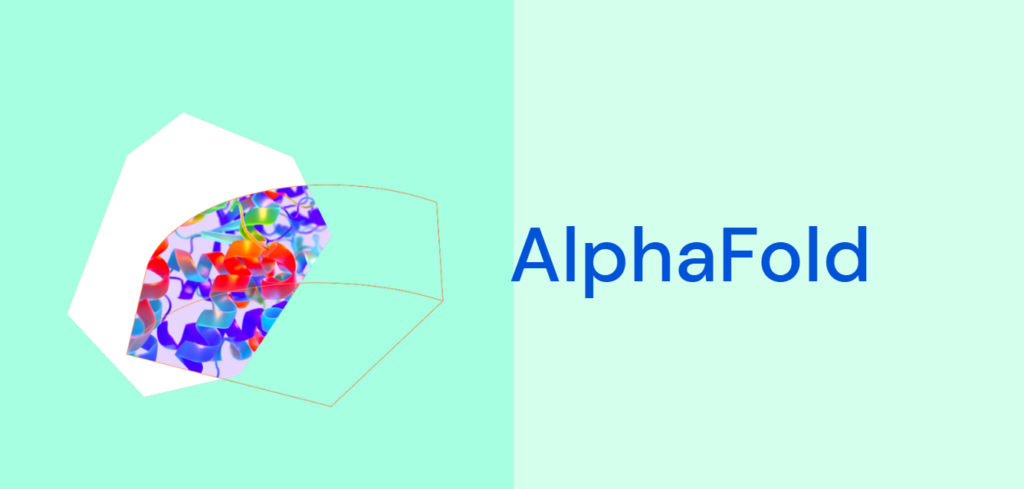
DeepMind Technologies, a subsidiary of Alphabet Inc., has developed an AI system called AlphaFold that predicts protein folding structures with remarkable accuracy. In 2020, AlphaFold made headlines by solving the protein folding problem, which has stumped scientists for decades [3]. By accurately predicting the three-dimensional structure of proteins, AlphaFold can accelerate drug discovery and provide insights into various diseases, including Alzheimer’s and Parkinson’s [4]. The AI system’s success has been recognized by the scientific community, with Nature featuring it as a significant breakthrough in the field of biology [5].
3. Google’s BERT: Enhancing Language Understanding
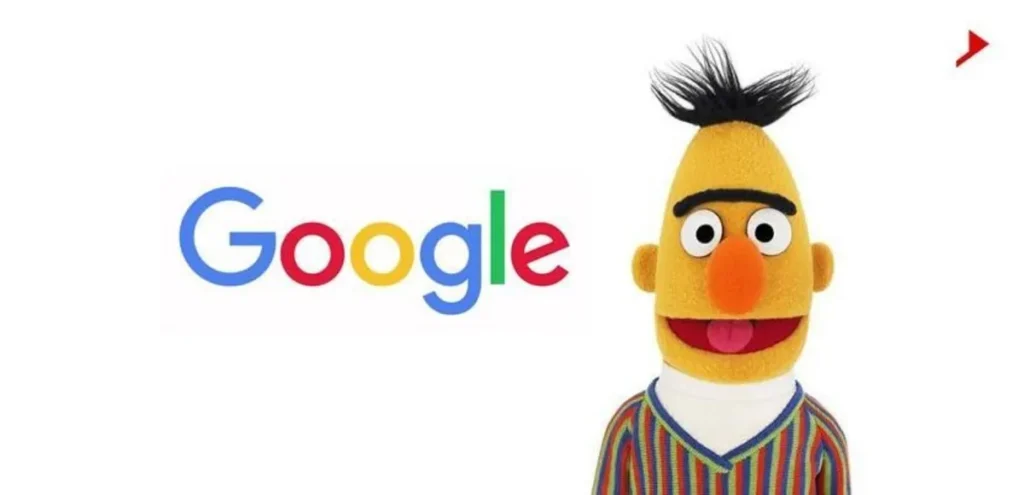
BERT (Bidirectional Encoder Representations from Transformers) is an NLP model developed by Google that has been widely adopted for various language understanding tasks. BERT’s bidirectional training approach enables it to grasp the context of words more effectively, making it capable of understanding complex human language [6]. BERT has been used to improve search results, sentiment analysis, and other text-based applications. For instance, Google Search now leverages BERT to better understand the intent behind search queries and provide more relevant results [7].
4. NVIDIA’s GauGAN: Turning Doodles into Masterpieces
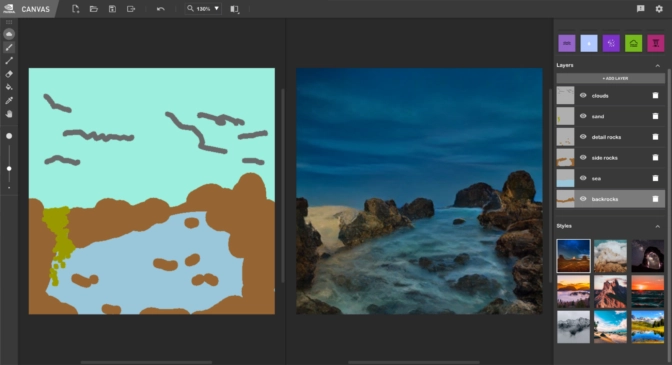
NVIDIA’s GauGAN is an AI-powered generative adversarial network (GAN) that can convert simple sketches into photorealistic images by understanding the context of the input. Named after the famous painter Paul Gauguin, GauGAN utilizes a two-part neural network consisting of a generator and a discriminator to create realistic images [8]. Potential applications for GauGAN include art, design, video game development, and virtual world creation. It has also been used in architecture and urban planning, enabling professionals to visualize their ideas in a more efficient and accessible manner [9].
5. IBM Watson: The AI Powerhouse for Industry Applications
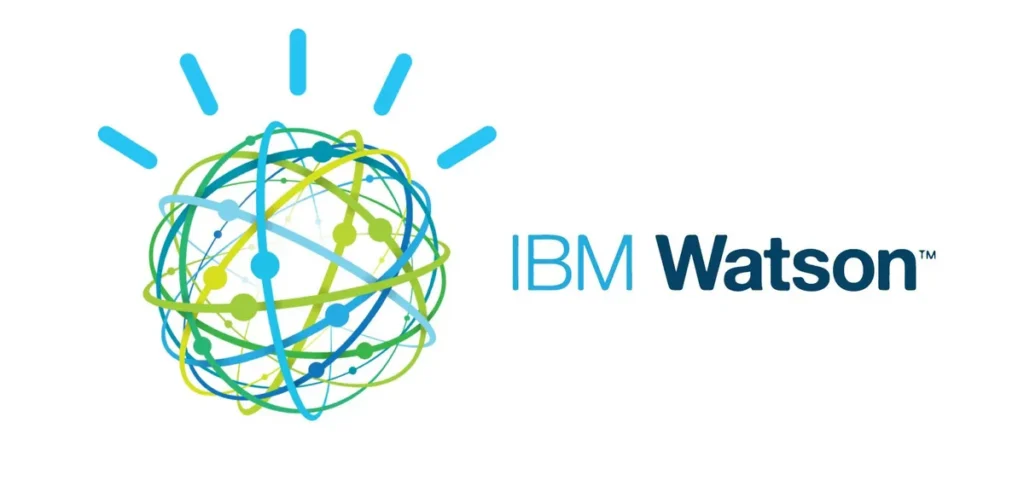
IBM Watson is an AI platform that offers various AI services, including NLP, machine learning, and computer vision. Watson has been applied to a wide range of industries, such as healthcare, finance, and customer support, providing insights and enhancing decision-making. For example, Watson’s oncology platform can analyze medical records and provide personalized treatment recommendations for cancer patients [10]. In finance, Watson has been used to predict trends, optimize investment strategies, and detect fraud, making it an indispensable tool for financial institutions [11].
Conclusion
While ChatGPT has undoubtedly made significant contributions to the field of AI, it is important to recognize that there are numerous other AI applications pushing the limits of what is possible in their respective domains. OpenAI Codex, DeepMind’s AlphaFold, Google’s BERT, NVIDIA’s GauGAN, and IBM Watson are just a few examples of AI models and systems that are revolutionizing industries and making a profound impact on our lives.
These groundbreaking AI applications showcase the incredible potential of artificial intelligence and serve as inspiration for future research and innovation. As AI continues to evolve and mature, we can expect to see even more astonishing advancements that will reshape the way we live, work, and interact with the world around us.
References:
[1] OpenAI. (2021). Introducing the OpenAI Codex. Retrieved from https://platform.openai.com/docs/introducing-the-openai-codex
[2] OpenAI. (2021). The OpenAI API. Retrieved from https://platform.openai.com/docs/guides/overview
[3] DeepMind. (2020). AlphaFold: a solution to a 50-year-old grand challenge in biology. Retrieved from https://deepmind.com/blog/article/alphafold-a-solution-to-a-50-year-old-grand-challenge-in-biology
[4] Senior, A. W., Evans, R., Jumper, J., Kirkpatrick, J., Sifre, L., Green, T., … & Hassabis, D. (2020). Improved protein structure prediction using potentials from deep learning. Nature, 577(7792), 706-710.
[5] Callaway, E. (2020). ‘It will change everything’: DeepMind’s AI makes gigantic leap in solving protein structures. Nature, 588(7837), 203-204.
[6] Devlin, J., Chang, M. W., Lee, K., & Toutanova, K. (2018). BERT: Pre-training of Deep Bidirectional Transformers for Language Understanding. arXiv preprint arXiv:1810.04805.
[7] Nayak, P. (2019). Understanding searches better than ever before. Google Blog. Retrieved from https://www.blog.google/products/search/search-language-understanding-bert/
[8] NVIDIA. (2019). NVIDIA Research Turns Sketches into Photorealistic Landscapes with GauGAN. Retrieved from https://news.developer.nvidia.com/nvidia-research-turns-sketches-into-photorealistic-landscapes-with-gaugan/
[9] NVIDIA AI Playground. (n.d.). GauGAN. Retrieved from https://www.nvidia.com/en-us/research/ai-playground/
[10] IBM Watson Health. (n.d.). Watson for Oncology. Retrieved from https://www.ibm.com/watson-health/learn/oncology
[11] IBM Watson Financial Services. (n.d.). Watson Financial Services. Retrieved from https://www.ibm.com/watson/financial-services



